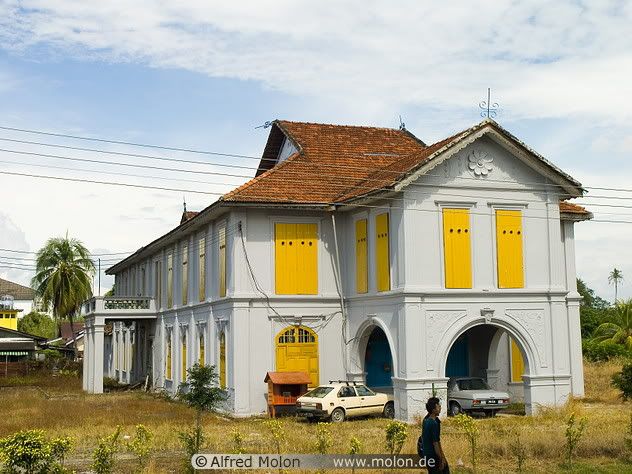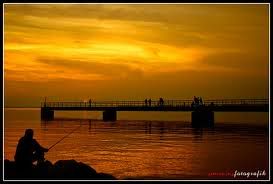IT is not just in Tuscany on the River Arno, Italy that there is a leaning tower. There is one right in our own backyard, in Teluk INtan to be precise.
At certain angles, the Menara Condong clock tower located in the heart of this town in Perak appears as if on the verge of toppling.
Built in 1885 by contractor and philanthropist Leong Choon Chong, also known as tycoon Ah Cheong, the 25.5m tower is Teluk Intant most famous landmark.
Originally used as a water tank, the tower is something of an architectural curiosity. The outer part comprises a wooden “cage” made of cengal gayung wood but the inner structure is brick
The story regarding how this clock-tower came to be built is quite interesting and is linked to geomancy.
During the British administration, Leong consulted a feng shui master who advised him to build a huge store at a strategic location with a commanding view of the traffic flowing down the river.
Leong’s design concept was inspired by the pagoda designs of China. The water storage tank was placed in the upper four storeys, while the lower three were let out to local traders. For 34 years, until 1919, the tower stored water from Sungai Perak for the residents of the town. When a reservoir was built in Changkat Jong about 8km from the town, it ceased to serve this function.
During World War 2, the Japanese removed the tiles on the roof and set up an observation post to monitor traffic on the Perak River. In 1997, the Hilir Perak district council constructed a square around the tower area.
That area now teems with tourists trying to capture a photograph of the tower from the best possible angle. As a clock tower, the century-old timepiece is indeed a technological marvel. It always ran trouble-free with accurate readings.
Why were the factors that caused the tower to lean??
It was said that two serious floods in 1889 and 1895 seriously affected the foundations of the tower. As a result, the structure began to tilt.
The floods were caused by the overflowing of Sungai Perak Water rose up the tower and it tilted to the left towards the present Jalan Bandar (formerly Anson Road) sinking 1.5 metres. It also sank slightly towards Jalan Selat (to the right) by three quarters of a metre to a metre.
But now, more than a hundred years later, the tower still stands. There were reports in 1995 that it had tilted further due to piling work at a nearby construction project but this was later dismissed as baseless.
The authorifies want to preserve the site for posterity and as a tourist attraction and possibly a future heritage site.
Visitors to Perak should stop by the former Teluk Anson for a closer look at this oddity. It is certainly cheaper than making a trip to Italy to view the Leaning Tower of Pisa.















